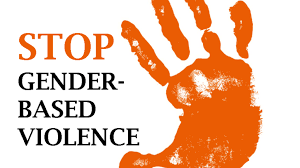Effingham County, Georgia, has been shaken by the tragic death of Judge Stephen Yekel, 74, who took his own life inside the courtroom just hours before what was meant to be his final day in office.
The late judge had recently lost his re-election bid and was facing significant professional and personal challenges, including legal disputes and public scrutiny. His death highlights the intense pressures faced by public officials and raises questions about mental health support in high-stress professions.
Why a Judge Might Resort to Such an Act: A Detailed Analysis
The tragic suicide of Judge Stephen Yekel in his courtroom underscores the immense pressures that individuals in high-stakes, public-facing roles often face. Below are several interconnected factors that could explain why such an event might occur.

1. Professional and Career Challenges
Loss of Re-election
Judge Yekel’s loss in his re-election bid was likely a significant emotional setback. Judges, particularly those with a long history of service, often derive a sense of identity and purpose from their roles. Losing the election might have left him feeling rejected, undervalued, and uncertain about his future.
Rejection of Resignation
His attempt to resign, which was blocked by Governor Brian Kemp, could have compounded his feelings of frustration. Yekel’s desire to step down was likely driven by his dissatisfaction with the election process, which he described as being decided by only 6% of eligible voters. The Governor’s decision to reject his resignation might have left him feeling powerless, trapped in a position he no longer wished to hold.
Pending Lawsuit
A lawsuit filed by a court employee, Lisa Crawford, accusing Yekel of wrongful termination added to his professional challenges. Allegations of a “conspiracy scheme” within the court and the demand for damages could have further tarnished his professional reputation and increased stress levels.
2. Personal Struggles
Divorce and Financial Issues
Judge Yekel’s recent divorce and financial difficulties likely weighed heavily on him. His ex-wife’s acknowledgment of their failed daycare business and the financial strain it caused added another layer of emotional burden. Financial instability, coupled with personal loss, could have contributed to feelings of despair.

Public Scrutiny and Rumors
During his re-election campaign, Yekel faced allegations and rumors about his personal life and professional conduct. Public criticism, particularly in the midst of a contentious campaign, may have left him feeling isolated and unfairly judged.
3. Mental Health Challenges
Chronic Stress in Judicial Roles
Judges often work under intense pressure, making life-altering decisions and dealing with emotionally charged cases. The weight of these responsibilities can lead to chronic stress and burnout. Without proper mental health support, this stress can escalate into depression or anxiety.
Feelings of Isolation
The judicial role often demands impartiality and discretion, limiting opportunities for open emotional expression. This isolation might prevent judges from seeking help or discussing their challenges openly, leaving them to cope alone.
4. Societal and Systemic Issues
Stigma Around Mental Health
Even in high-pressure professions, stigma surrounding mental health persists. Judges may fear that acknowledging mental health struggles could be perceived as a weakness, deterring them from seeking professional help.
Lack of Support Systems
The legal system may not provide adequate emotional or psychological support for judges. Programs designed to address the mental health of legal professionals are still lacking in many jurisdictions, leaving individuals like Yekel vulnerable to their struggles.
Preventive Measures and Lessons Learned
This tragedy highlights the urgent need for systemic changes to address the mental health challenges faced by individuals in high-stakes professions.
- Mental Health Programs: Implementing counseling services and wellness programs tailored for judges and legal professionals can provide a crucial outlet for stress and emotional struggles.
- Peer Support Networks: Creating safe spaces for judges to connect and discuss their challenges with colleagues can help reduce isolation.
- Public Awareness Campaigns: Reducing the stigma around mental health, particularly in professional settings, can encourage individuals to seek help without fear of judgment.
- Judicial Oversight Reform: Revisiting processes around resignation, re-election, and judicial accountability can help reduce unnecessary stress and ensure fair treatment.
Judge Yekel’s death is a tragic reminder of the hidden tolls of high-stress professions. His professional and personal struggles, coupled with societal and systemic challenges, created a perfect storm that likely led to his untimely demise. By addressing these issues through preventive measures and support systems, future tragedies like this can be avoided.









